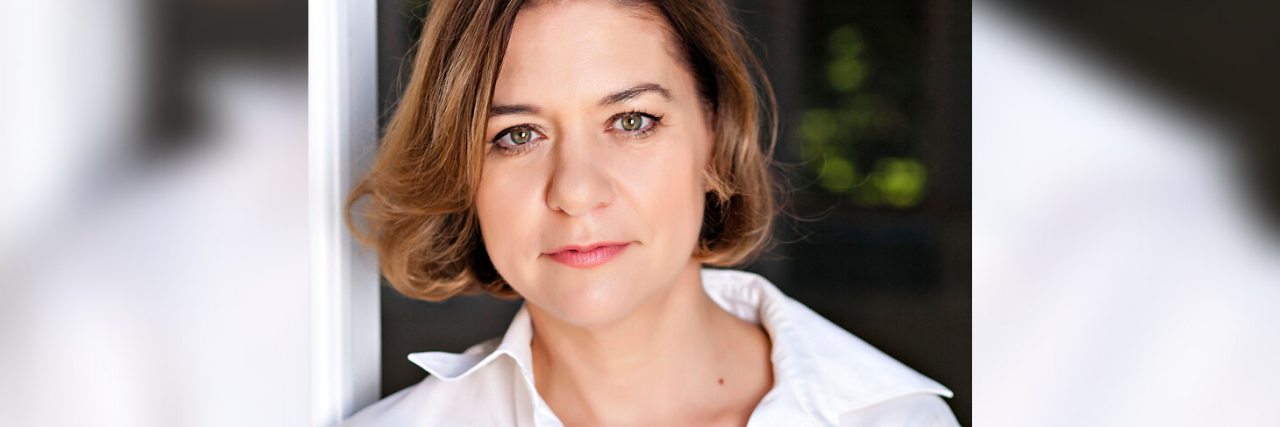Cathy Cahlin Ryan is an actress currently seen on the CBS show “S.W.A.T.” She’s also appeared in “The Shield,” “Justified” and “The Unit.” She is married to Shawn Ryan, co-executive producer of S.W.A.T., and is the mother of two children. In her role as Dr. Wendy Hughes, a mental health professional who helps the team and victims, her job highlights an important aspect of police work. S.W.A.T., which airs on Wednesday nights, focuses on the professional and personal lives of members of a highly trained squad of first responders. Dr. Wendy Hughes’ role is vital in helping the men and women who protect our city understand and cope with their daily job stress. Her job is especially vital when a crisis occurs.
Ryan rarely does interviews, so I’m happy she took time out of her schedule to talk about the importance of mental health and access to care.
Some answers have been slightly edited for length and clarity.
AG: How did you research the character to accurately represent a mental health care provider for first responders?
CR: I’m really lucky because one of my best friends does it. I realized when I was with her and watching her — I don’t want to say there’s a detachment — but there is one in that she has to be completely professional. She often actually goes to prison and talks to prisoners and evaluates them, so she’s really in it. And I talk to her a lot and gather information that way. And her manner of speaking when she, you know, she has that hat on.
AG: How did you do the research — was it, “Hey, let’s have lunch and let me pick your brain”?
CR: I did do research, but I also investigated what it means to work in a police station and be their person. What does that entail when you’re that person for a fire department, the police department or something on those lines. And then you’re also dealing with the victims or the criminals themselves. That’s where I go slowly as an actress initially. How can I support? Because it’s really a support position for these men and women who are first responders, and if that position is they need me to get information or to diagnose these people, you know, to save the world, that’s what I’m going to do. That’s how I’d attack it, so it’s very business-like.
AG: What do you think needs to be done to raise awareness in the medical community for better access to proper and timely mental health care?
CR: Well, I think it’s an issue. I’m going to not equate it entirely, but there’s a parallel with the homeless community right now, mental health and all of that. And I think there’s a big problem and a gap with getting proper diagnosis and proper treatment. I think it’s all about that; I have to say I think it’s also related to lack of formal funding and funding for professionals who can properly assess situations whether it’s in the criminal realm. By the way, whether it’s in the homeless realm or whether it’s within a household, a family household, I think first and foremost people have to be willing to understand mental health and think about it an almost like diabetes or something like that, where it can be properly diagnosed and treated. You can live a healthy life but you have to just choose a plan. Does that make sense?
AG: It does. How have you changed as a person because of your experience playing a mental health professional?
CR: First of all, I love playing Dr. Wendy. I really enjoy it and I think the biggest thing is the listening. I’m thinking more… I try not to, even with my family, get emotional right away, but try to read them myself and have more reasonable awareness. It has had, in my opinion, a positive effect on me and I just love it.
AG: What have you learned about the challenges that are impacting the mental health community from playing this role?
CR: There’s still a stigma attached… whether it’s bipolar, you’re depressed or you say you’re on medication, I believe people still have in them a little bit of judgment about it. And I don’t know how to chip away at that, I do think exposure — like you and International Pain Foundation do it obviously — it’s a huge help, you know. You can see online when people post it creates a community of people in a safe haven, and I think more of that would probably be beneficial. It also matters what you see on-screen. Like maybe you do have a main character who deals with anxiety and has to take medication every day. You know what I mean? That’s not a horrible idea. And they just go about their life.
AG: Whether it’s physical pain or emotional pain, when your loved one is having a difficult day, what helps?
CR: I think it’s having someone you can talk to and say anything to without being judged — I think that’s the biggest support, in my opinion. And I think it’s important to show that nonjudgmental listening on TV.
AG: How does storytelling help increase awareness?
CR: It’s all about exposure. The more awareness that gets out there, the more people can recognize something within themselves. Then they’ll be able to get that hope they need. It is important to show where people are authentically, that’s a good thing. And I think the more you see, the more you can identify with characters and know you’re not alone — that’s representation.
You can follow Cathy Cahlin Ryan on Twitter @cathycryan.
See more from Amanda at LA Lupus Lady.

